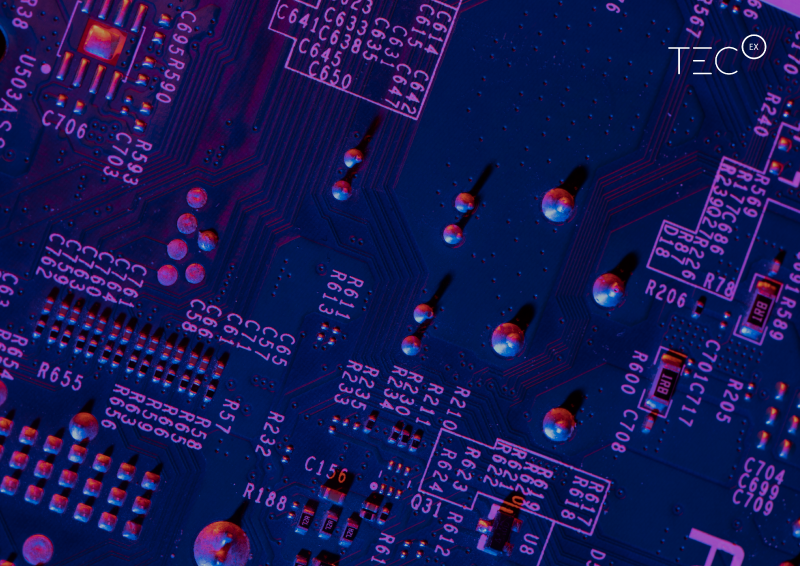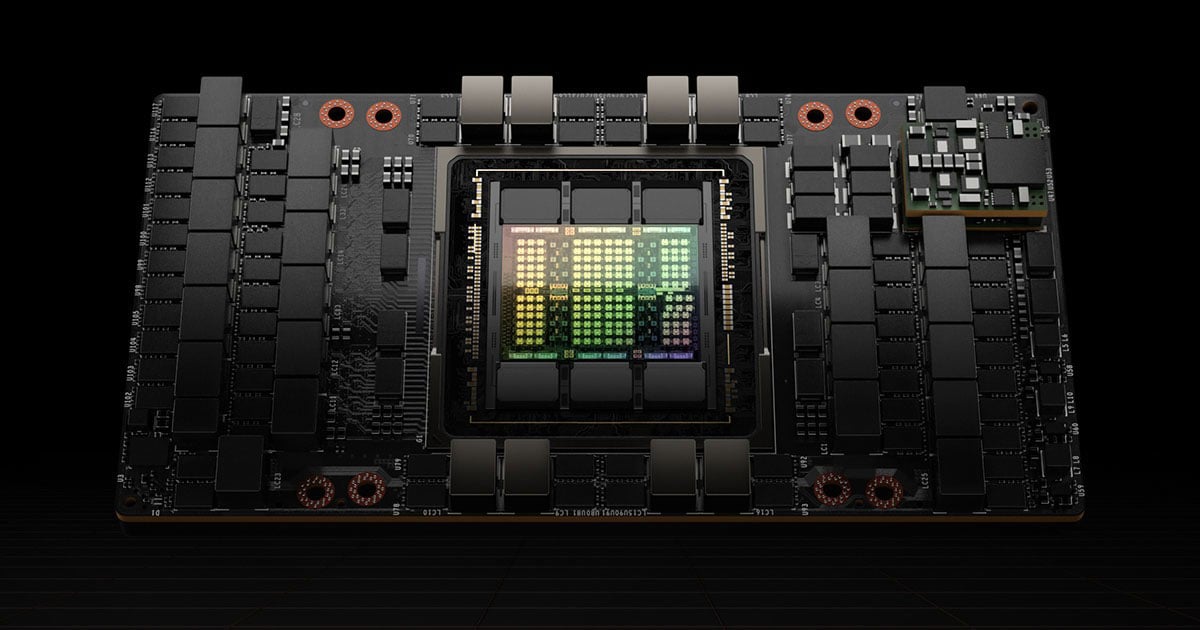Nvidia Develops AI Chips Compliant With US Export Regulations, While GPU Smuggling To China Flourishes As An Industry
Artificial Intelligence (AI) chip manufacturers face formidable challenges when navigating import and export regulations and trade compliance. Due to their potential for both civilian and military uses, the dual-use nature of these goods tightens compliance requirements in many countries.
The addition of an AI Cold War complicates things further. The US-China trade war began in 2018 and has had far-reaching consequences for this industry. This is especially true for Nvidia, the world’s leading AI company.
When the US placed export regulations on Nvidia AI chips going to China, there were three notable consequences:
- An underground market for smuggled Nvidia A100 AI chips flourished,
- Nvidia has since been developing progressively better AI chips for the Chinese market to comply with trade barriers, and
- Chinese AI models began relying on domestically produced chips from tech giants like Huawei and start-ups like Enflame to keep up with global AI innovation.

Nvidia AI Chips Are Cheaper To Rent In China
While the flagship H100 Nvidia AI chip has never legally set foot in China, the A100 chip was briefly available in their market before the 2022 export ban. However, these remnants are just some of the Nvidia chips in the country.
Black market trade utilizes nearby countries like Malaysia, Japan, and Indonesia to ship servers and processors into Hong Kong before their last stretch into Shenzhen, China. A100 chips sell for a whopping $20,000 apiece, double their value in the US.
In addition, some Chinese companies have exploited loopholes in the US embargo by establishing entities in nearby countries to purchase the chips before sending them to China.
The US sanctions seem to have left Chinese vendors untouched when it comes to renting out Nvidia AI processors – A100 and H100 alike. Smaller Chinese cloud providers charge around $6 an hour for a server with eight A100 Nvidia chips. Compared to similar US vendors, with an hourly rate of $10, advanced Nvidia chips are not difficult to come by in China.
However, larger Chinese cloud operators, like Alibaba, must ensure compliance with US export regulations and charge $12-$18 an hour for server rentals. Still, their prices are lower than comparable US servers, which charge between $15 and $32 an hour. Chinese companies can also rent Nvidia processors online from US-based companies like Microsoft and Amazon.

China’s flourishing black market for this AI hardware highlights the complexity of trade embargoes and the risks they bring for unscrupulous behavior. While Nvidia is committed to taking action if it discovers a customer violating US sanctions, it has no means of tracking where its products end up. Additionally, the US cannot easily enforce export control rules outside its country.
This situation emphasizes the need for shippers to investigate a product’s end user and research the relevant trade regulations. If you need assistance navigating import or export regulations for AI hardware or other advanced tech, you can be confident that TecEx has the know-how to get your goods where they need to be. We ensure compliance and take on all shipping-related risks so you can be at ease throughout the shipping process.
How Can AI Chip Manufacturers, Distributors, and Value-Added Resellers (VARs) Ensure Compliance With Export Regulations?
Companies looking to export AI chips could consider implementing a robust compliance program that includes regular staff training, maintaining updated product records, and conducting thorough research into customers and distribution networks. To navigate the complex web of regulations, consider consulting an expert like TecEx.
Nvidia Overcomes US Export Regulations With Compliant AI Chips For China
Nvidia CFO Colette Kress reported to CNN that the US sanctions on China would cause a “permanent loss of opportunities.” However, despite inevitable declining sales in China, she believed the company’s growth elsewhere would offset Nvidia’s losses.
Still, Nvidia recognized the need to develop compliant GPUs for the Chinese market and created three new chips. According to the Financial Times, Nvidia is projected to make $12 billion in revenue from H20 AI chips sold in China in 2024 despite the US embargo. This prediction is double what Huawei’s rival product is expected to make.
Nvidia began by reducing the capabilities of its A100 and H100 chips to create the A800 and H800 for China, but changes to the original export ban rendered them non-compliant. In response, it made the H20, L20, and L2 chips to comply with the new restrictions. While it has ensured that it can still sell on the Chinese market, the competition with its geopolitical rivals is much closer as they face no US-enforced restrictions.
Despite the growing limitations, Nvidia has unveiled a new flagship AI chip for China, which remains compatible with US export regulations. After its Blackwell AI chips were announced this year, Nvidia revealed that a China-specific GPU from this series would be developed. The new chip, currently known as the B20, is set for distribution in mid-2025
Overview of Nvidia’s China-Specific GPUs

While Nvidia has faced setbacks due to the embargo, which allowed their competitors to gain momentum, they have shown their determination to quickly and flexibly adapt to remain compliant with trade regulations while staying on top of the game. This quality is pertinent in global trade compliance, where challenges like trade wars, stringent customs compliance, and global pandemics can hinder and obstruct your supply chain and revenue.
Need to import an AI tech product into a foreign country? A reliable and knowledgeable import and export partner like TecEx can help navigate trade barriers for streamlined, compliant global shipping.
China Counteracts US Embargo With Domestic AI Chip Production
Another impact of the US export regulations is China’s informal prioritization and promotion of domestic AI GPUs over imported ones. China Telecom boasts two LLMs (large language models) trained by domestically produced AI chips, while Huawei’s latest Ascend 910 processor is positioned as a close competitor to Nvidia.

This feat is a significant step towards China’s innovative independence. Furthermore, this may promote healthy competition between Chinese AI tech companies and importers like Nvidia.
If your AI tech is ready to compete in new global markets, TecEx is your reliable shipping partner. As a trusted Importer of Record (IOR) with extensive knowledge and understanding of international trade agreements and sanctions, we know how to ship AI tech worldwide.
A Summary Of China’s AI Chip Market After US Sanctions
The US sanctions on AI hardware going to China have had extensive and long-term repercussions. A boom in the Chinese black market for surreptitiously imported GPUs and online processor rentals has allowed Chinese companies to retain access to Nvidia AI.
Meanwhile, Nvidia’s determination to produce export-compliant competitive chips has kept them on the Chinese market.
Lastly, China’s push for domestically produced, innovative semiconductor alternatives has introduced new players to the game.
This snowball of events has been nothing short of suspenseful. While the US introduced its export bans due to national security concerns, this may have boosted China’s economic growth and increased its efforts in the AI Cold War.
If you need to ship advanced hardware with AI capabilities worldwide, you should be able to focus on your direct operations rather than global trade barriers. TecEx can manage the end-to-end deployment of your technology to get your AI chips where they need to be, with cost savings and reduced risks. Consult with one of our experts to learn more.
Exporting AI Chips | FAQs
What Are The Current Us Export Controls On AI GPUs Going To China?
The US government has imposed various export controls to restrict the sale of high-performance AI GPUs to China. These regulations are designed to prevent the technology’s use in military applications and mitigate national security concerns.
What Are The Penalties For Violating Export Control Regulations?
Violating export control regulations can result in severe penalties, including substantial fines, loss of export privileges, seizure of goods, and even criminal charges against responsible individuals. TecEx can take on the risk and navigate complex exports with our extensive knowledge of import & export compliance and sanctions.
How Do I Determine If My Nvidia Products Require An Export License To China?
You can check the “Commerce Control List” (CCL) by reviewing the EAR. Products classified under certain Export Control Classification Numbers (ECCNs) often require licenses for exports to China. Consulting with compliance experts like TecEx is recommended to assess licensing requirements accurately.
Will The Trade Relationship Between The US And China Affect Future Regulations On AI Chip Exports?
Yes, the evolving geopolitical landscape can impact regulations. Tensions between the US and China may lead to stricter controls or new regulations. Staying updated on trade news and government announcements is essential for manufacturers and distributors.
